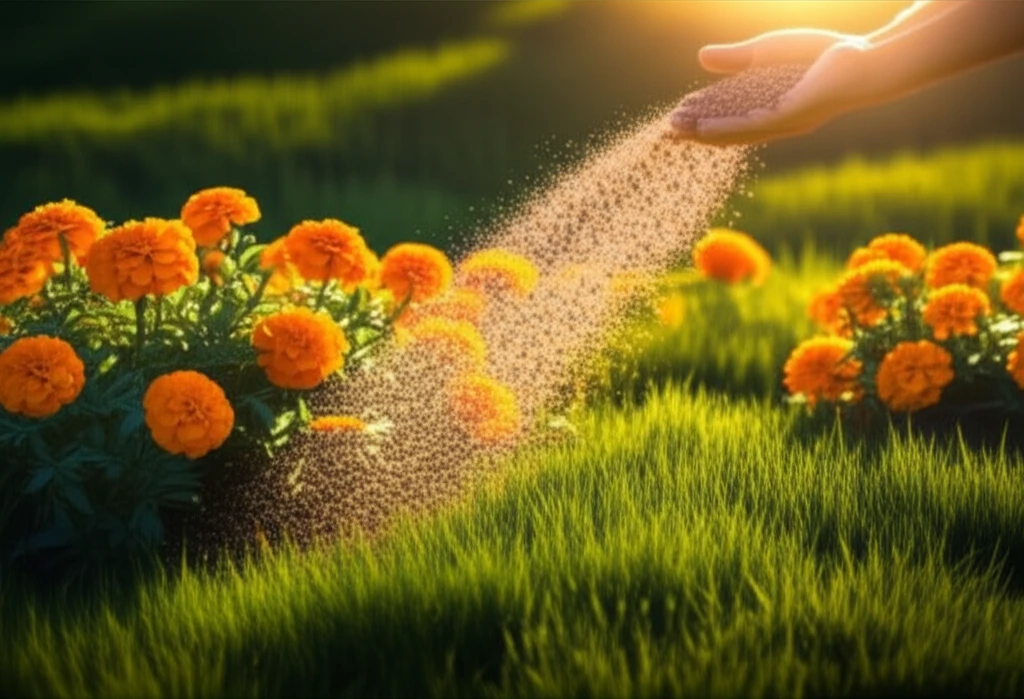
Marigold Magic: How Organic Farming on Bahia Grass Can Boost Your Garden's Bloom and the Planet's Health
"Discover the secrets of organic fertilization using Bahia grass and marigolds, a sustainable approach to gardening that benefits both your blooms and the environment."
In a world increasingly focused on sustainable practices, organic gardening offers a compelling alternative to conventional methods. This approach not only nurtures the soil and the plants but also minimizes the environmental impact. Among the many facets of organic gardening, the use of organic fertilizers and companion planting, such as marigolds and Bahia grass, stands out as a particularly effective and beneficial technique.
This article delves into the innovative practice of cultivating marigolds (Calendula officinalis L.) on Bahia grass (Paspalum notatum) using organic fertilization. This method, as explored in the research, represents a harmonious blend of ecological principles and gardening techniques. We aim to shed light on how this approach boosts the growth of marigolds and contributes to a healthier ecosystem.
By examining the effects of different levels of organic fertilizer on marigold production, we'll uncover valuable insights into maximizing the potential of your garden while embracing environmentally friendly practices. Whether you're a seasoned gardener or a budding enthusiast, this article provides the knowledge and inspiration to cultivate a thriving, sustainable garden.
Unveiling the Power of Organic Fertilization: A Deep Dive into Marigold Cultivation

The study, conducted in Montes Claros, Brazil, provides a detailed look at how organic fertilization impacts marigold production. The researchers experimented with varying amounts of organic fertilizer applied to marigolds grown on Bahia grass. This setup allowed them to assess the impact of these fertilizers on the plants' growth and overall health. The experiments were carefully designed to observe how the marigolds responded to different levels of organic nourishment.
- Organic Fertilizer: The core of this study, examining how different amounts of organic fertilizer affect marigold growth.
- Bahia Grass: Used as a living mulch, providing benefits to the marigolds and the soil.
- Experimental Design: The method used to test different fertilizer levels, ensuring reliable and comparable results.
- Data Analysis: The techniques used to measure and interpret the impact of organic fertilizer on the marigolds.
- Outcomes: The main findings of the study, showing how the organic fertilizer and Bahia grass influenced the growth of marigolds.
Embracing the Green Path: Sustainable Gardening for a Healthier Tomorrow
The journey into organic gardening, as demonstrated by the marigold and Bahia grass experiment, is more than just a gardening technique; it's a commitment to a healthier planet. By embracing organic methods, you're not only enhancing the beauty and productivity of your garden but also contributing to a more sustainable future. This approach encourages a deeper connection with nature, promoting practices that benefit both the environment and our well-being. So, start your organic gardening adventure and experience the joy of cultivating a vibrant, eco-friendly space.
